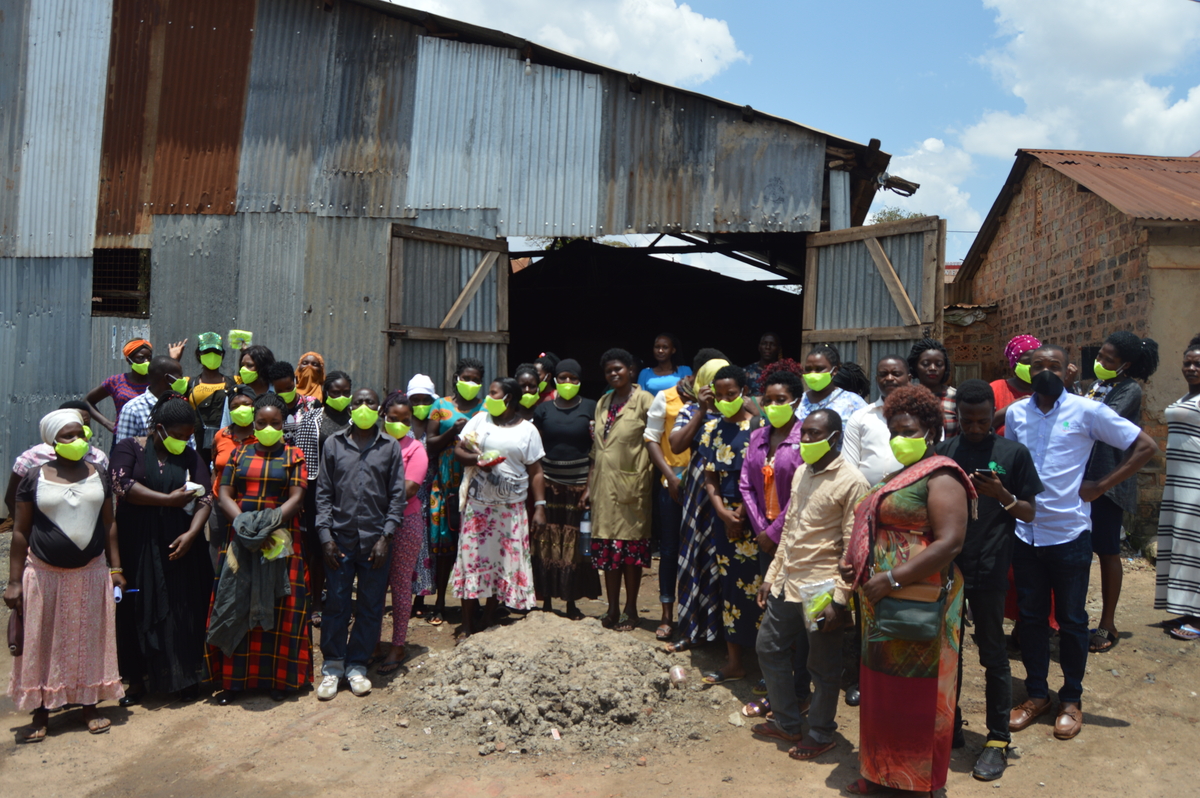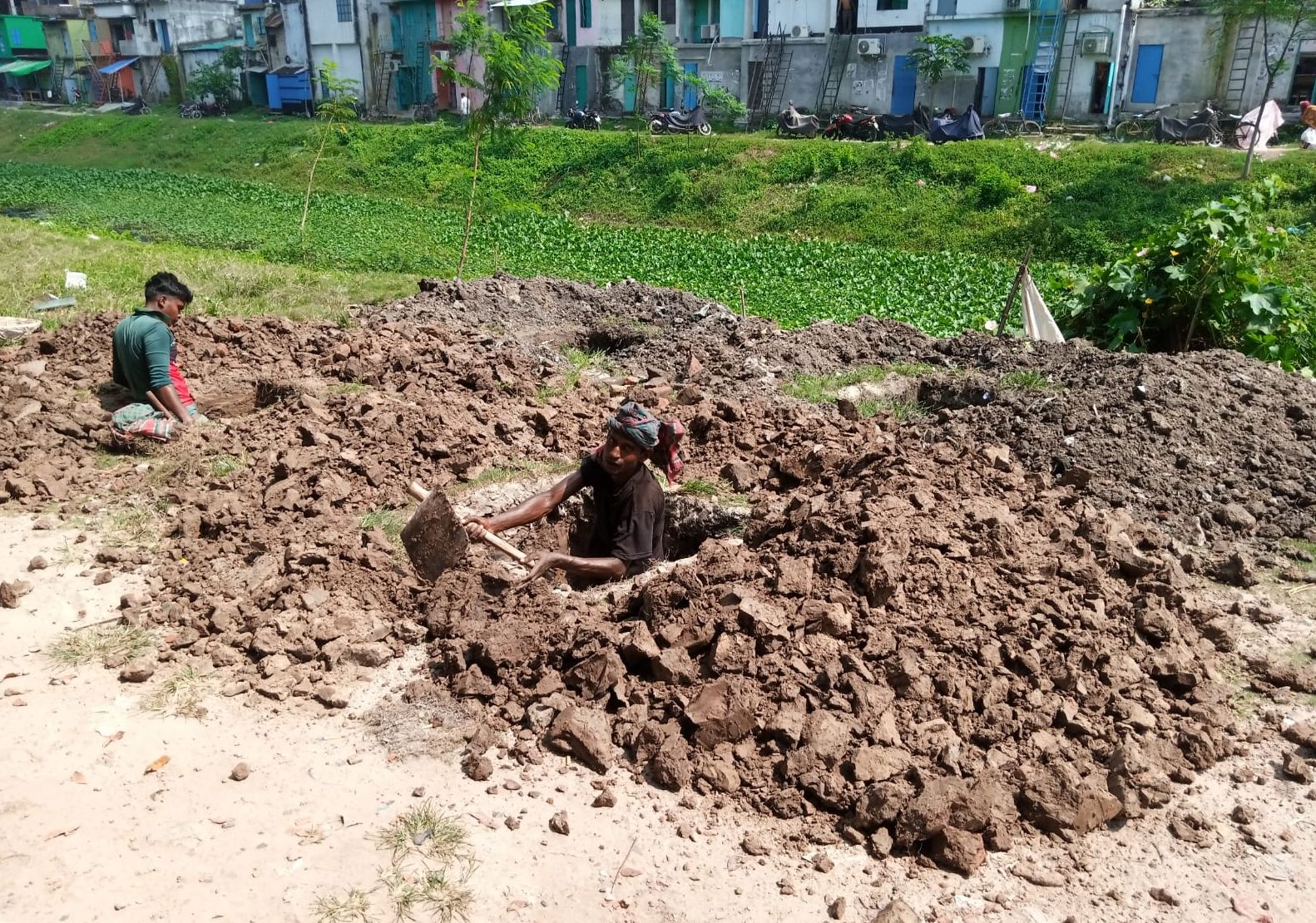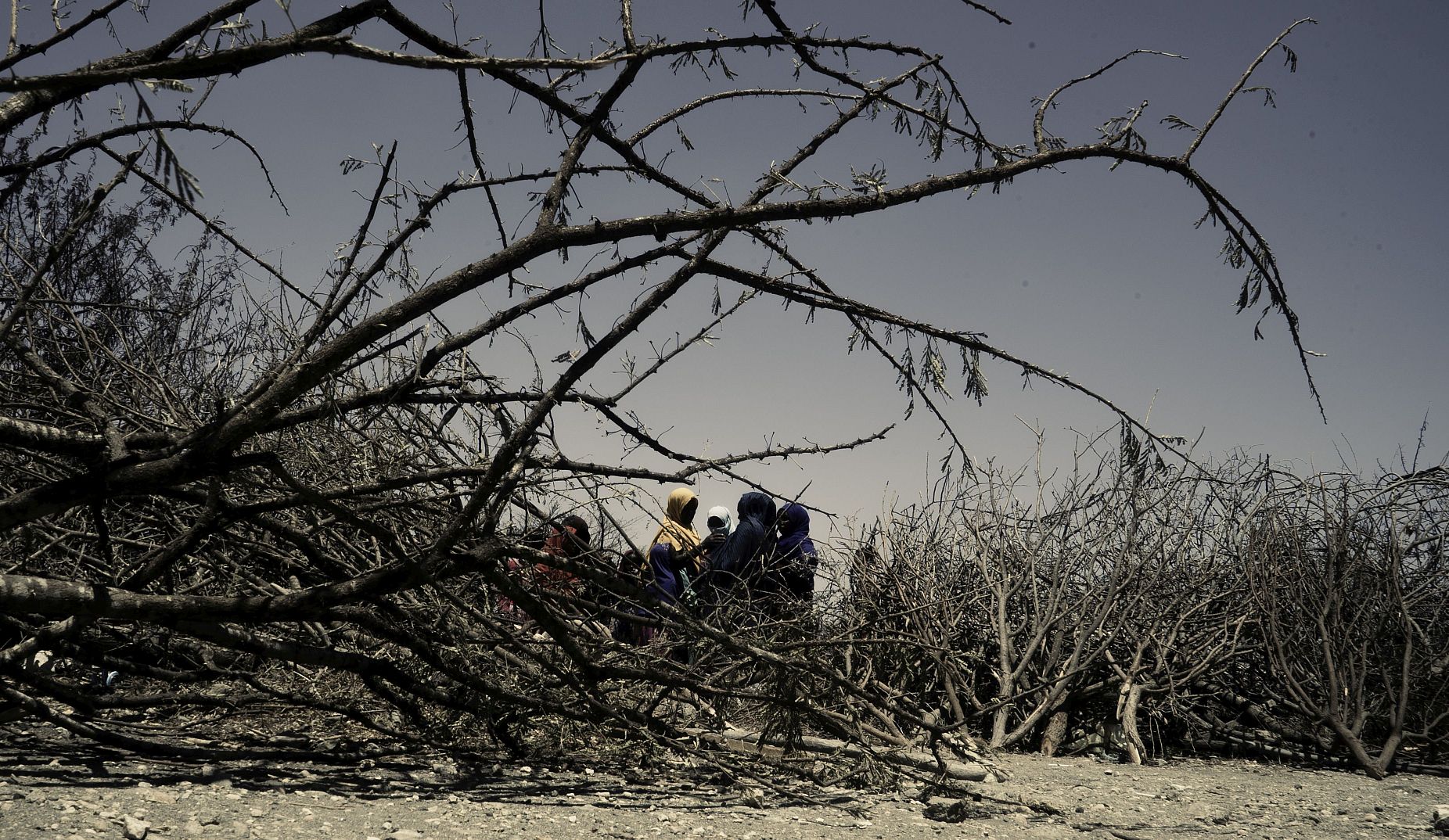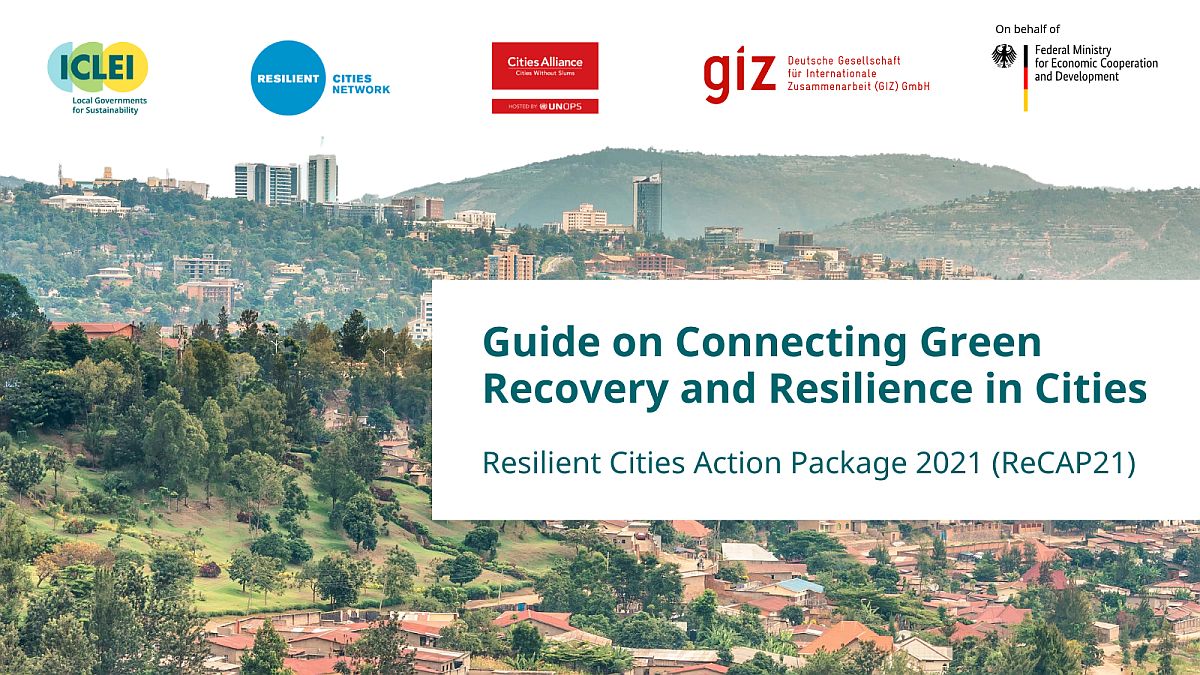Improving Waste Management to Build Climate Resilience in Kampala
Download the project update report
As part of its vision to inspire and cultivate environmental stewardship in communities and create cleaner, greener local environments, Tree Adoption Uganda (TAU), has developed a unique project in Uganda's capital, Kampala, to improve household waste disposal.
The project, called Waste Management for Flood Control, is implemented in Bwaise, one of Kampala's most populated slums, regularly affected by heavy floods during the rainy season. It aims at improving livelihoods while supporting local communities to better cope with the impact of climate change.
The initiative is supported by Cities Alliance Innovation and Climate Change programmes, through the Innovation Programme Call for Proposals 2020, funded by the Swedish International Development Cooperation Agency (Sida) and with support from the German Federal Ministry of Economic Cooperation and Development (BMZ).
Waste mismanagement can cause environmental contamination and create public health hazards and nuisance conditions. It can also increase the risk of flooding, imposing additional hardships on poorer residents who are already more vulnerable to the effects of climate change.
Open dumping of garbage is a global problem, especially in poorer communities where people may lack affordable and accessible options for proper waste collection and disposal.
Improper disposal of household garbage is the major cause of flooding in Bwaise. Household waste is often dumped into the already inadequate drainage channels, causing blockages, flooding and damage.
People impacted by flooding can lose their belongings and their livelihoods, as well as time, spent drying out their flooded houses – which also exposes them to further health hazards from the dirty floodwaters. Flooding affects all residents in the area, but women are especially vulnerable, due to their low socioeconomic status, fewer opportunities, and responsibilities that confine them at home.
Tree Adoption Uganda is tackling the problem through a multi-faceted approach which includes community engagement, education, incentives, and advocacy. The original project concept called for the use of colour-coded bins for separating household waste for recycling and collection. Before implementing the project, TAU mapped 1,000 households and conducted a baseline community survey to better understand both waste management issues and flooding situations in the area.
The survey report and project concept were presented at an initial stakeholders’ workshop, which gave community members the opportunity to offer input and recommendations about the project – a valuable step that helped TAU custom tailor the project to better fit the needs of the slum's residents.
Following the suggestions from the community, the updated project will now distribute carbonization drums instead of the initially planned colour-coded bins for segregated waste.
The carbonizers can be used to convert sorted organic waste into carbon, which can then be made into briquettes for use in cooking or sold to generate additional household income. As an additional potential source of income, TAU will also help the community identify outlets for recycled products from other sorted household waste.
As the pandemic has created challenges in conducting the regular project activities, TAU has been engaging with stakeholders virtually, holding awareness and training sessions on sorting waste, carbonizing and briquette making. The project has also been able to conduct community clean-ups on a hyper-local scale, in strict accordance with the local COVID-19 regulations.
To further raise awareness on waste management, TAU has also produced an animated video, which will soon air on national television to sensitize communities at a larger scale.

The project has welcomed encouraging early feedback demonstrating how it is already raising awareness about this issue within the local community.
This training and project have opened our eyes; something that we have been seeing as a problem in our community can actually be used to our advantage. I have learnt that we can benefit from waste instead of dumping it indiscriminately.
Ms Eunice Kamya, resident of Bwaise, who participated in one of TAU's recent trainings
In collaboration with city authorities and other stakeholders, TAU is also advocating for better drainage systems and engineering designs to reduce floods and to better enable the community to adapt to the new realities of climate change for the future.





